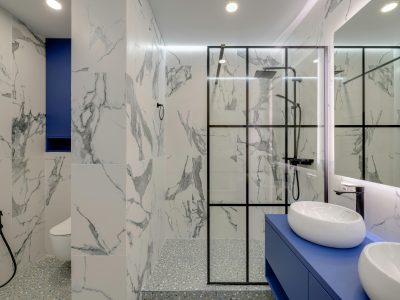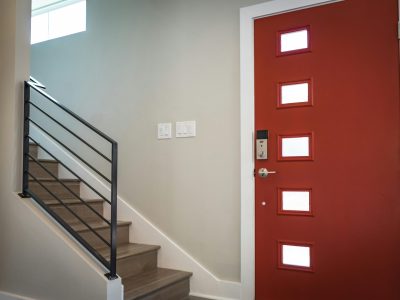Are you concerned about a home inspection? A home inspection is stressful but it doesn’t have be.
This list contains the most common reasons a home inspection can fail. A home inspection does not have a pass or fail rating. The inspection is merely to create a report based on an expert’s opinion. Some items may not pass insurance inspections, or meet certain mortgage requirements. This article will discuss items that may fail your home inspection. However, it does not mean the inspection is failing.
You can find these items in your home before you sell the house being inspected. These are the major items you should be looking for if you’re buying a house.
What is a Home Inspection?
Before we can get started, let’s first define a home inspection.
A home inspection is an independent assessment of the property and its structure. This is usually requested as part of a real-estate transaction but it can be done at any time.
Homebuyers can hire licensed inspectors to assess the property’s condition, make a report and recommend specialists if necessary.
The Top 10 Things that Fail a Home Inspection
The Roof
The roof is the most important item in a home inspection. It’s also the most costly to repair.
Home inspectors are looking for roofs that have at least three to five years remaining. We have an article about roof lifespans.
Home inspectors also look for signs of damage and leaks and signs of unprofessional repairs.
HVAC Problems
HVAC problems are number 2. Although HVAC systems aren’t as costly as roofs, they tend to be more prevalent and require expensive repairs.
What is HVAC?
Depending on the size and type of HVAC system, it can cost well over $5,000 to replace.
Home inspectors inspect the cooling performance of the A/C. They look for temperature differences between 14-24 degrees and the temperature coming out.
Home inspectors also check the heat and look for mold.
Electrical Problems
The electrical standards of today are higher than those of 30 years ago. Outdated panels and updates to their electrical requirements can affect older electrical systems.
Another top concern is electrical concerns.
Most common electrical problems are obsolete panels, fuse boxes and aluminum wiring.
Hire a licensed electrician to ensure that your electrical system meets current standards.
Water Intrusion
Water intrusion can occur from the roof, windows or through inept siding. Water intrusion can leave evidence such as staining or other conducive conditions that indicate water entering your home.
The use of moisture meters and thermal imaging to check for water intrusion in homes is how home inspectors detect it.
Keep vegetation out of your home and paint the walls. Also, check for water spots to confirm water intrusion.
Mold Problems
Mold problems can be caused by prolonged water intrusion and food sources. For example, a roof leak that is not fixed can cause drywall to become wet. This can lead to mold growth.
Regular home maintenance is necessary to prevent mold problems from happening.
Structural Settlement
Structural settlement can occur in older homes, unmaintained houses, and even new ones with improper foundations.
Structural settlement is defined as cracks larger than 1/8 inch in your home, doors that do not close or closing automatically, sloped floors and other issues.
It is important to make sure that water drains away from your home in order to prevent structural settlement. Water that drains towards your home can easily move the soil on which your foundation is built.
Termites
Termites are common in the Southeast United States, as well as in humid areas such California. Termites are attracted to slightly damp wood.
Home inspector in Rainier can find termite damage in unmaintained homes with water intrusion problems. Home inspectors are not licensed to report termites. Some inspectors may be licensed. Sometimes, home inspectors will refer a pest inspector to their report or outsource pest inspections.
For preventative termite treatment and inspections, hire a pest control firm. Also, ensure that your home is maintained.
Grades
The soil slopes next to your home is a key factor in grading. You want water to drain away from your home if it lands on your roof.
Make sure that your grading slopes away from your home in all areas. You might also consider gutter extensions and gutter extension to direct more water away from your house. Additionally, keeping vegetation and mulch away from your home will help dry the soil faster.
Water flow control can improve many conditions leading to a home inspection failing.
Inadequate Insulation
Inefficient insulation can make your home more hot/cold than it should be. Make sure insulation is installed in crawlspaces and attics.
Drainage pipes
Cast iron and Orangeburg pipes are major problems in today’s homes. Both types of drain pipes can fail, which can cause many problems, including backup sewage and structural issues.
Make sure your drainage pipes have been updated with PVC. Also, consider having a sewer scope inspection done to inspect the condition of your drainage pipes.
Last Thoughts
A home inspection is stressful but it doesn’t have be. A pre-listing inspection is a good idea if you’re selling a house. This will allow you to see what a buyer’s inspector might find. A qualified home inspector is a great way to find problems and address concerns when purchasing a property.













Comments